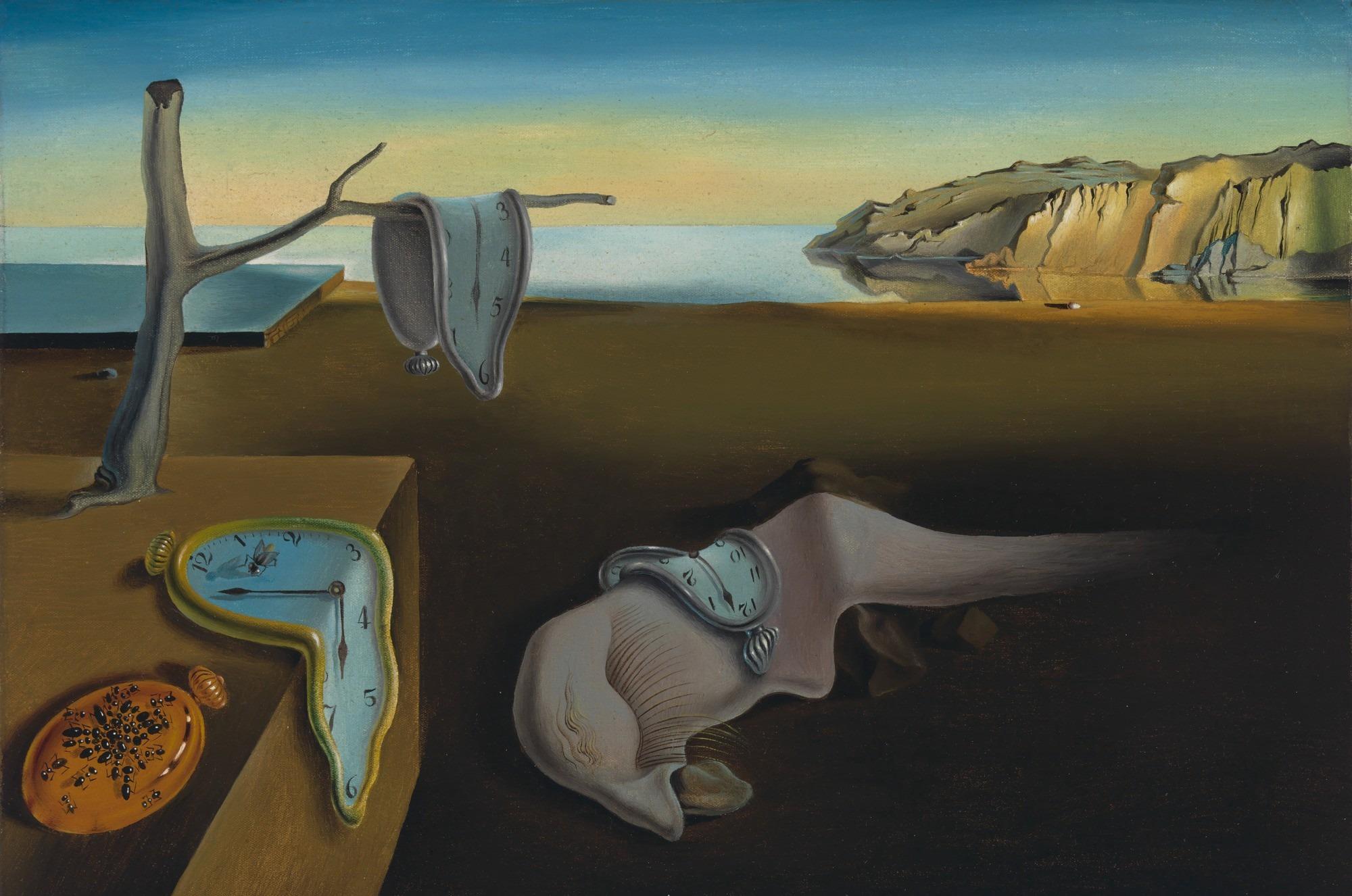Painting Title: The Persistence of Memory
原标题 :The persistence of memory
Artist: Salvador Domingo Philippe Jacinto Dali-Domenek
Created in : 1931 (aged 26)
Genre of style : Surrealism
Period : Modern art
Size: 33×24.1cm
Material: Canvas oil on canvas
Collection location : Museum of Modern Art, New York
Subject Matter : Symbolist painting

The Eternity of Memory (1931) El Salvador · Dali
Background :
Salvador Dalí (11 May 1904 – 23 January 1989)
He was born in Figueres, a small town north of Barcelona, Spain
Dalí had an older brother who died when he was 2 years old, and their mother gave Dalí the same name as his brother
Parents often compared Dali to his brother who died prematurely
His father, a notary and well-to-do family, built a studio for Dalí by the sea
As a child, Dalí once rescued an injured bat, and once accidentally saw the injured bat surrounded by ants and slowly eaten, Dalí saw it and went up to bite the bat
Near Dalí's home is the Great Plains, as well as olive groves and the Catalan coast with sharp rocks
Works by:
The entire work consists of distant beaches and realistic but distorted close-ups.
Landscapes of the homeland often appear in Dalí's works
The beach view in the vista originates from the scenery near his hometown when he was a child, which belongs to the typical Mediterranean landscape and becomes the best representative symbol of Dalí's childhood memories and happy feelings.
The smooth beaches are bathed in magnificent sunshine, the mountains rolling and the blue sky and the mountains form a dreamy transition of colors, as if people's memories of not being bad are added to a beautiful filter.
The iconic "soft timepiece"
Signature '' soft timepiece
A soft clock or flowing clock is one of Dalí's most widely known symbols, like melted cheese flowing down the table or hanging from a branch. The clock that records time is cold and rigid machinery, but Dalí feels that time is as soft as water.
A copper watch crawling with ants
The red copper pocket watch is crawling with ants, we can't see time, a metaphor for people who always run away from the truth.
The ant, on the other hand, decayed and decayed, expressed Dalí's inner fear and uneasiness.
If there is anything fair in the world, then it is time.
Dalí himself
The biggest difference d'Dalí and the surrealist painters of the same period was that the illusions in his paintings gave a sense of realism, and each image in the painting was given an allegory that transcended its own.
Dalí's work is both realistic and dreamy, his lines, proportions, light and shades, and tones are rigorous and accurate, but his ideas are novel and strange, so he creates a unique sense of grotesqueness and reality.
Trivia:
1) In order to get closer to this real illusion, Dalí once went to a mental hospital to observe and understand the consciousness of mentally ill people.
2. Da uses the naked eye to identify the hidden tomb in Miller's "Evening Bell" screen, which changes the theme of this work.
3. Dalí met his wife, Carla, who had been with him all his life, while filming Spanish director Buñuel's film An Andalus Dog.
4. Surrealism is often associated with the human subconscious, dreams, and hallucinations.